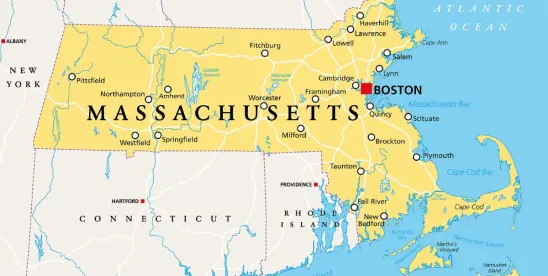This week, the Massachusetts Supreme Judicial Court (SJC) reviewed a lower court’s dismissal of gun-related indictments against Richard Dilworth, Jr., related to the state’s refusal to disclose the bitmojis and usernames it used to conduct online surveillance through Snapchat accounts in 2017 and 2018.
Police arrested Dilworth for possession of a loaded revolver after Boston police saw eight Snapchat videos in which Dilworth appeared to be holding a gun. Dilworth was also arrested again after the initial arrest, and again while in possession of a firearm, again after police saw him holding a gun on Snapchat.
During discovery, Dilworth sought the bitmojis and usernames to determine whether the police used Snapchat to target non-white individuals in violation of the Equal Protection Clause of the U.S. Constitution. The state claimed that the Snapchat surveillance targeted individuals suspected of criminal behavior based on tips received from informants.
The state argued that it could not comply with the discovery order because disclosure of the information would compromise informants and police officers, but the Suffolk Superior Court rejected that argument and granted Dilworth’s motion.
On appeal, during oral arguments, the SJC questioned the defendant’s attorney about how the bitmojis and usernames would strengthen the argument that the state had conducted selective prosecution. As further support, Dilworth’s attorney explained that the defense had conducted an informal survey of public defenders whose clients had been the subject of Snapchat surveillance; the survey showed that 17 out of 20 cases targeted Black individuals, and the other 3 were Hispanic individuals.
Dilworth’s attorney argued that the discretionary choices made by the officers in setting up the investigatory scheme (i.e., the use of Black bitmojis) went to the core claim that Dilworth was targeted because of his race. However, Justice Serge Georges, Jr., interjected that Dilworth was targeted because “he can’t stop flashing and posting videos of guns.” Justice Georges continued, “Mr. Dilworth was arrested after whatever was witnessed online, and no sooner does he hit the street, he does it again. So, it’s not this generalized kind of targeting that I see here. It’s a specific targeting.” The defendant’s counsel replied that the information the defense had developed raised questions about the true purpose of the surveillance.
We will await the SJC’s decision on the legality of this Snapchat surveillance and how that decision could affect other types of social media surveillance and profiling.



 />i
/>i

